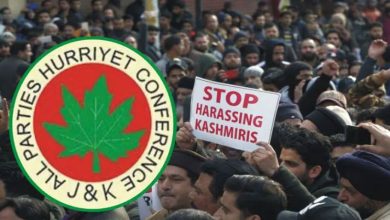Rohingya refugees– victims of India’s Hindutva fueled apartheid
 Jammu: Despite claims of being the world’s largest democracy, India’s treatment of Rohingya refugees reveals a stark contrast, exposing the systematic discrimination and violence they endure under the Modi government.
Jammu: Despite claims of being the world’s largest democracy, India’s treatment of Rohingya refugees reveals a stark contrast, exposing the systematic discrimination and violence they endure under the Modi government.
According to Kashmir Media Service, Rohingya refugees, primarily Muslim, have been subjected to violence and intimidation by Hindutva activists, showcasing the Indian government’s failure to protect vulnerable minorities.
The government’s imposition of strict visa restrictions and refusal to recognize Rohingya refugees as legitimate has further isolated them, making it difficult for them to seek safety. With no clear framework for protection, due to India’s refusal to sign the 1951 UN Refugee Convention, Rohingya refugees are exposed to exploitation and human rights abuses. Many are detained under India’s Foreigners Act, without pending court cases, and some face indefinite incarceration.
India’s complicity extends beyond its borders as well. The country continues to supply arms to the Myanmar government, despite its role in persecuting Rohingya Muslims, raising questions about India’s commitment to human rights. The refusal to recognize the UNHCR refugee cards as valid further exacerbates their plight.
Approximately 22,500 Rohingya refugees in India face harsh treatment, including the separation of children from parents, detention without legal recourse, and inadequate access to basic services.
A hunger strike held in September 2024 resulted in several deaths, including a baby, drawing international condemnation. The government’s cancellation of NGO licenses further curtailed legal aid for refugees, illustrating India’s disregard for international laws and human rights.








